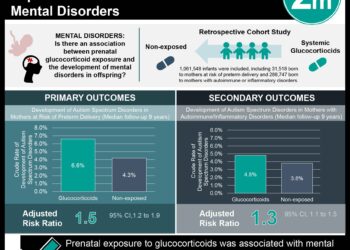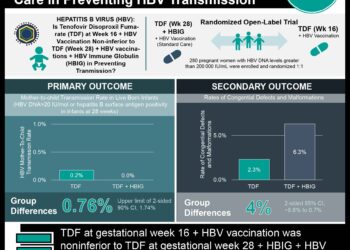Quick Take: Planned early delivery or expectant management for late preterm pre-eclampsia (PHOENIX)
Preeclampsia is associated with increased morbidity and mortality for both mother and infant. In addition to maternal and fetal assessment, timely delivery after 37 weeks’ gestation is recommended to minimize maternal and perinatal morbidity. In women with late preterm preeclampsia, between 34 and 37 weeks’ gestation, however, there is a lack of consensus surrounding the optimal time for delivery, with some centers opting for expectant management until 37 weeks’ gestation, or earlier delivery if indicated in the setting of severe preeclampsia, for example. In this randomized controlled trial, 901 women with late preterm pre-eclampsia and a singleton or dichorionic diamniotic twin pregnancy were randomized to undergo a planned delivery or expectant management (usual care) to determine whether planned delivery reduces maternal adverse outcomes without substantial worsening or neonatal or infant outcomes. The co-primary maternal outcome was a composite of maternal morbidity or recorded systolic blood pressure of at least 160 mm Hg. The co-primary perinatal outcome was a composite of perinatal deaths or neonatal unit admission up to hospital discharge. Other than two women who had spontaneous onset of labor, all other women in the planned delivery group received the trial intervention. Of the women randomized to expectant management, 54% had a medically indicated delivery before 37 weeks’ gestation, with only two women giving birth before 37 weeks’ gestation without an additional medical indication. Researchers found that the incidence of the co-primary maternal outcome was significantly reduced in the planned delivery group (65%) as compared to the expectant management group (75%) (RR 0.86, 95% CI 0.79 to 0.94, p=0.0005). The incidence of the co-primary perinatal outcome, however, was significantly greater in the planned delivery group (RR 1.26, 95% CI 1.08 to 1.47, p=0.0034). This study therefore shows that planned delivery significantly reduces maternal morbidity compared to expectant management. This, however, must be weighed against an increased risk of adverse neonatal outcomes associated with prematurity.
Click to read the study in Lancet
Image: PD
©2019 2 Minute Medicine, Inc. All rights reserved. No works may be reproduced without expressed written consent from 2 Minute Medicine, Inc. Inquire about licensing here. No article should be construed as medical advice and is not intended as such by the authors or by 2 Minute Medicine, Inc.







